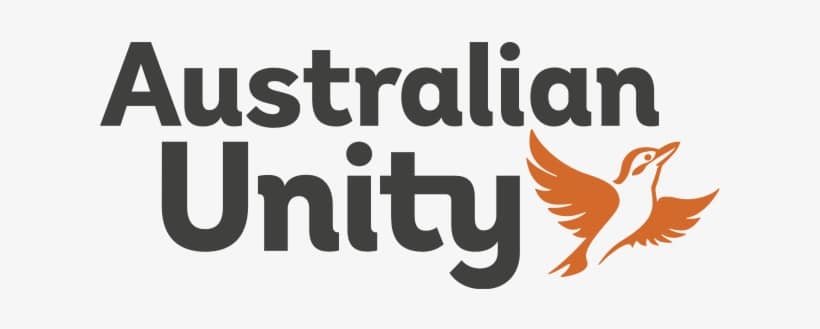Home > Health Insurance > Health Insurance For Bridging Visas
Health Insurance For Bridging Visas
Find and compare quotes for health insurance to cover you through your bridging visa here with Savvy.
Author
Savvy Editorial TeamFact checked



We’ve partnered with Compare Club to bring you a range of health insurance policies to help you compare them side by side.
If you’re living in Australia on a bridging visa, the chances are that you won’t be covered by Medicare benefits. That means you’ll be required to ensure you have adequate private health insurance to cover your health needs while you wait for your full visa to be granted.
Finding health insurance that complies with government regulations for visa holders is simple with Savvy. We make it easy for you to compare these policies with our free comparison service, including assistance from a health insurance specialist to help you find a policy suited to your needs among a panel of trusted insurers. Get your health insurance needs sorted through Savvy today.
What health insurance can I get for a bridging visa?
The type of health insurance you’ll need while on a bridging visa is known as Overseas Visitors Health Cover (OVHC). This type of insurance is designed for temporary visitors, workers and residents who aren't covered by the Australian Medicare system. All health insurance policies available to overseas visitors through Savvy comply with the 8501 visa condition, which requires you to have adequate health insurance while living in Australia.
With an OVHC policy, you can either get health cover just for yourself or for you and your family under one policy. You can also choose whether you have cover which just satisfies the basic minimum hospital cover to comply with your visa conditions or one that provides more comprehensive extras cover. Naturally, the more areas of cover provided by your health policy, the more it’ll cost.
What is included and excluded with health insurance for bridging visas?
The cheapest health insurance option available only includes basic hospital cover, ambulance cover and some pharmaceutical benefits, which will assist you with the cost of medicines. However, it won’t cover the cost of visiting a doctor or seeing a dentist or physiotherapist.
The minimum inclusions which all OVHC policies must comply with to satisfy the 8501 visa condition are:
Public hospital cover
A benefit rate equal to the state and territory gazetted rate for ineligible Medicare patients, including:
- Overnight and hospital accommodation (including all costs for theatre, intensive care, labour wards and pharmaceuticals)
- Emergency department fees resulting in a hospital admission
- Patient care and post-operative services required after discharge from hospital
- All admitted treatments covered by the Medicare Benefits Schedule
Ambulance cover
- 100% of the cost of ambulance transport not otherwise covered by third-party arrangements
Pharmaceutical
- For all Pharmaceutical Benefits Schedule-listed drugs, a benefit equal to the listed price (above the patient contribution)
Inclusions with extras cover
If you choose a higher level OVHC and elect to add extras cover you may be able to claim back a portion of the costs for these extra services:
- GP consultations
- Specialist consultations
- Pathology (such as blood tests)
- Radiology (such as X-rays)
- General dental
- Optical
- Physiotherapy
- Acupuncture
Exclusions to private health insurance for bridging visas
The following exclusions may apply to the health cover you buy for your bridging visa:
- procedures not considered medically necessary
- elective cosmetic surgery or procedures including laser eye surgery, tattoo removal and breast enlargements
- some alternative medicines and treatment
- assisted reproductive treatments (such as IVF treatments)
- stem cell treatments, organ transplants and bone marrow treatments
- treatments provided outside of Australia
- treatments covered by compensation or damages claims
How should I compare different health insurance policies?
To get the best health insurance for your current needs on a bridging visa, go through these steps and ask yourself these questions when comparing your options:
Who is the health cover for?
If you just need health insurance cover for yourself, look at a singles policy. If you have your partner or family with you, you may look towards a policy for couples or families.
Do I want cover just for hospital treatment or extras too?
A hospital cover policy will give you basic benefits if you’re admitted to hospital for treatment. It is the cheapest form of OVHC cover. It is also available in a range of levels, from basic to top cover. If you opt for a higher hospital cover and add on extras benefits too, you’ll likely get some cover for the cost of visiting a doctor, a dentist or a physiotherapist, but you’ll pay more for the policy.
How much can I afford?
When considering your health care budget, think about the treatments that you’ve required in the past six months and consider how much you’d pay for that treatment if you didn’t have health insurance. This is particularly relevant when considering if it’s worth having private health insurance with extras cover, since basic hospital cover is mandatory. Whether you need extras cover or a higher level of OVHC will depend on your need to see a GP, have dental work done, or see other health care specialists such as physiotherapists, chiropractors and opticians.
What are the waiting periods which may apply?
OVHC is offered on a month-by-month basis, so you won’t have to pay for your cover in advance, but it’s worth checking what waiting periods may apply. These may range from:
- one day for ambulance cover
- two months for other types of cover such as optical and dental
- up to 12 months for pre-existing conditions or pregnancy
How critical these waiting periods are for your needs will depend on the length of time you anticipate living in Australia on your bridging visa.
Types of health insurance
This can help you pay for medical treatment if you need to be admitted to hospital. It can help cover the cost of your admission or accommodation and the fees charged by doctors, surgeons and anaesthetists. It can also cover other costs associated with a stay in a private hospital.
This helps cover the costs of health care treatments outside a hospital setting which aren’t covered by Medicare. This can include major and minor dental treatment, orthodontics, hearing aids, physiotherapy, glasses, contact lenses and podiatry (in most cases with annual limits).
This is a standard health insurance policy designed for a single person, rather than being tailored to cater to the needs of a couple or family. It may include hospital cover plus extras, or either of these types of insurance on their own, depending on what you're after for your health cover.
A family health insurance policy is designed for a family unit including dependent children who may reach up to 31 years of age with some insurers. It offers private health insurance suitable for the whole family and may include shared limits for all members included in your policy.
A health insurance policy aimed at seniors is designed to appeal to people who are in the second half of their life. These are often specific Silver Plus policies that offer the same cover as other health insurance policies, with the exception that pregnancy and childbirth cover may not be included.
Visitors who are in Australia on a temporary basis for travel, work or study may be able to take out Overseas Visitors Health Cover (OVHC). Many visas issued in Australia come with a requirement to take out this type of insurance, which covers visitors who may not be covered by Medicare.
Ambulance cover is generally available either packaged into your private health insurance or on its own as a separate policy or subscription. By having this protection, you could be covered for all eligible ambulance travel in Australia (subject to your insurer's terms and conditions).
The cheapest and most barebones form of private hospital insurance, this can include cover for rehab, in-hospital psychiatric services and palliative care. Having this policy will enable you to avoid paying the Medicare Levy Surcharge (MLS) and Lifetime Health Cover (LHC) loading.
Bronze hospital cover is a step up from basic insurance, including 18 further clinical categories such as ear, nose and throat, bone, joint and muscle, digestive system, joint reconstructions, gynaecology and chemotherapy, radiotherapy and immunotherapy for cancer.
Silver hospital cover is the second-most expensive type of policy and offers the second-most clinical categories. On top of what's offered by basic and bronze cover, it also includes heart and vascular system, lung and chest, blood, hearing device implantation and dental surgery.
The highest level of private hospital insurance available in Australia, gold policies can offer cover for pregnancy and birth, weight loss surgery, assisted reproductive services and insulin pumps on top of all the categories provided by silver, bronze and basic hospital insurance.
Why compare health insurance through Savvy?
100% free service
Our comparison tool doesn’t cost you a cent, allowing anyone to compare offers from trusted insurers around Australia for free.
Compare policies online in one place
You can consider the inclusions, premiums, benefits and other key factors easily with us, whether you’re at home or on the go.
Trusted insurers
Considering offers from trusted insurance providers can help give you peace of mind that you’re comparing high-quality policies.
Frequently asked questions about health insurance for bridging visas
Yes – there are some limited opportunities for people who are on a bridging visa to be entitled to Medicare cover under a Ministerial order. These include those who are on temporary protection visas (subclass 785), removal pending bridging visas (subclass 070) and others.
Yes – each subclass of bridging visa permits different levels of travel in and out of Australia and comes with its own conditions attached. However, almost all bridging visas require the visa holder to maintain an adequate level of health cover whilst they’re waiting for their visa status to be determined or for another type of visa to be issued.
If your bridging visa is changed to a student visa, you should be able to swap over the type of health insurance policy you have to Overseas Student Health Cover (OSHC), particularly if you remain with the same health cover provider. However, you may have to pay in advance for your student health cover as part of your student visa application.
If your health insurance expires, or you can’t afford to pay the premium and you’re left with no health cover, you may be in breach of the terms of your bridging visa conditions. You should urgently seek expert legal advice to ensure that your bridging visa is not cancelled.
Helpful health insurance guides
Looking for health insurance to cover your condition or treatment?
Read one of our helpful guides on a range of different ailments and potential hospital or extras treatments to help you find out if they're covered.
Disclaimer:
Savvy is partnered with Compare Club Australia Pty Ltd (AFS representative number 001279036) of Alternative Media Pty Ltd (AFS License number 486326) to provide readers with a variety of health insurance policies to compare. Savvy earns a commission from Compare Club each time a customer buys a health insurance policy via our website. We don’t arrange for products to be purchased from these brands directly, as all purchases are conducted via Compare Club.
Savvy’s comparison service is provided by Compare Club. Compare Club compares selected products from a panel of trusted insurers and does not compare all products in the market.
Any advice presented above or on other pages is general in nature and doesn’t consider your personal or business objectives, needs or finances. It’s always important to consider whether advice is suitable for you before purchasing an insurance policy.
For any further information on the variety of insurers compared by Compare Club or how their business works, you can read their Financial Services Guide.










